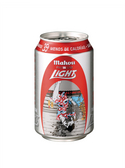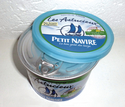Mixed fortunes for metal
18 September 2009How well are European can makers doing in the drinks, food and paint sectors in these critical times? Is the environment playing second fiddle to money worries for manufacturers and are any plans being put on hold? Joanne Hunter gets good answers to tough questions
A chequered picture emerges of the fortunes over the past year of metal packaging producers active in the drinks, food and household and industrial product sectors and there are geographic variations too. Companies in mainland Europe and the UK have been finding diverse routes through the mire; but, notably, they have looked towards the future and kept sustainability agendas on track. Moreover, the sector believes it has answers fitting for today’s economy and those brand owners needing their wares to work especially hard to attract sales.
Gerrit Heske, since April 2009 president of Ball Packaging Europe (BPE), looks at the changed picture of the European beverage can market: “The crisis has not spared the European beverage can market. In the first half of 2009 the sales volume in Europe declined by 4.9%. But the regions were hit in vastly varying degrees.
“While the decline was especially steep in Russia at 23%, the drop in sales in the rest of Eastern Europe was only 1.4%. France went counter to the trend with total growth of 5.6%, mainly due to increased soft drinks consumption.
“This is in stark contrast to 2007’s record growth - up by 10.2% to a total volume of 50.2 billion cans – and a comparatively modest but sound 5% growth rate in 2008. Western Europe was a solid performer showing growth of approximately 3.4% led by the Benelux countries expanding by roughly 9% in 2008. Great Britain remained the best selling market in Europe with some 8.5 billion drinks cans sold. Even on the weaker German market sales saw double-digit growth in 2008.’
Consumer preferences, not just economics, are having an impact in important emerging markets China and India. “We witness a growth in alcoholic beverages, especially in the beer segment,” says Mr Heske. “But in other areas we just see a substitution. For example, the consumption of beer is declining, while consumption of wine is on the rise and wine in cans is an increasingly successful product on the markets.” Aluminium and steel cans also lend themselves to energy and wellness drinks because they chill the contents quickly, making this a particularly healthy sector.
“We are convinced that further growth potential will present itself as soon as the international economy recovers, in particular in Eastern Europe. Therefore, market development remains one of Ball’s key focus areas.”
This includes getting innovations to the market more quickly. For example, Ball launched its resealable ends on the French and Dutch markets in 2008 and this summer, for the first time the Ball Resealable End was seen outside Europe, in the USA, in an energy drink. Monster Energy in 550ml cans is filled in The Netherlands and imported.
In 2008 Ball presented its first sustainability report becoming “the first company in the packaging industry to receive a US award [from Ceres and ACCA] for this”, says Heske. Adding: “In 2009 alone we intend to reduce energy consumption per unit produced by another 5%.”
In unexpected ways these recessionary times are offering opportunities for metal packaging to exercise customer-centred flexibility of supply and promote its ability to reduce product waste, material use and energy.
As France-based Impress explained to Packaging Today, the economy is having wildly different impacts on sales in its specialist segments, food and paints.
“De-stocking at our customers, retail and possibly even consumers has meant soft volumes across the board in the first half of 2009 and makes it difficult to distinguish real trends,” says Richard Moore, strategic development vice president. “However, our food can volumes have been remarkably resilient.
“At the same time we are seeing positive impacts from our extension of DWI (drawn and ironed) food cans in continental Europe, and from further conversions to Easy Peel ends with major brands in Europe and North America.”
Turning to the paint can segment, “In the UK DIY market we’ve seen strong evidence of customers destocking during the recession – turning finished good stock into cash by simply not replacing sold stock or only holding the absolute minimum levels,” reports Matt Sykes, key account manager, Paints and Coatings, at Impress Norwich.
“Consequently, when the market increases - as it did over the Easter period - the focus is on quick turnaround and reducing lead times. This is one area where we can benefit, as our manufacturing process allows us to react quickly and manufacture high volumes of product in a very short space of time. We can convert this flexibility advantage into an opportunity to win business.”
On whether corporate plans had been affected by the recession, Mr Moore comments: “We have not made any fundamental changes, although we have cut back somewhat on capital expenditures from the relatively high levels of previous years. We have continued to focus on cost reductions and reductions in inventory, with excellent results so far this year.
“We have continued our activity in external development, with the acquisition of Megasa in Spain earlier this year, and the creation of a joint venture with Royal Can in Thailand. And we have maintained our investment in innovation and R&D, where we have several major projects in preparation for market.”
Judging by the numerous functions and attributes packaging has to demonstrate, metal packaging is ideally positioned for today’s market.
Sales of food in cans in Europe have seen a year-on-year increase in value of 11.4%, driven largely by an increase in volume sales of canned ready meals, fish and vegetables, according to TNS Worldpanel, May 2009. And leading the way are staples such as baked beans, canned fish and canned vegetables.
Drinks can growth shows no signs of slowing in Europe, and are expected to top last year’s eight billion shipments, while the Industrial and DIY sectors are beginning to see some recovery.
Has the economic downturn taught any lessons about what being sustainable means? “The recession hasn’t necessarily thrown up anything new; it’s merely confirmed the fact that what we are doing is right,” answers Impress’s Mr Sykes. “Some people may not be aware, but the metal packaging industry has been focusing on sustainability for a very long time. Food cans are 35% lighter now than they were 20 years ago and the metal packaging recycling rate continues to surpass regulatory targets year on year.
“We have many innovation projects in development across our global business,” continues Mr Sykes. “Within our Paints & Coatings business unit, we have a new paint can called Ringo. “It’s a variation on the traditional paint can with all of the same dependable protective qualities, but it’s 10% lighter. Customers can see the benefit that this packaging has in terms of their own corporate responsibility objectives, where a reduction in packaging weight, based on waste reduction, is becoming a key issue.
“We also have a new digital print capability which allows us to produce very small quantities of printed cans. Customers can use this process to test new markets without exposing the customer to the risk of obsolescence, should the market growth not materialise,” concluded Mr Sykes.
The market is becoming increasingly aware of the environment. Gerard Dibb, managing director at Emballator Packaging, of Bradford, UK, claims that his specialist paint can company – part of a Nordic group with diverse packaging interests - is ‘the world’s first carbon neutral general line packaging manufacturer’.
Mr Dibb says: “Emballator has minimised the effects of the recession as far as is possible with a diversification programme to broaden the range of products that we sell to the market and to supply to a wider range of markets than the traditional DIY paint market.
“The results have been very encouraging and over the last few months it has started to pay dividends. Despite the recession we have continued to invest in our business and have installed fully automated Fanuc robots on all our lines for high quality automated packaging.”
A further strategy has been to introduce new products to the market. “We are the only tinplate manufacturer of 10Litre to 25-litre pails in the UK market and have introduced new products in this field with easy open and reseal lids both in non-UN format and some UN secure formats.” These have been well received by customers across Europe, remarks Mr Dibb.
Crown sees retailers looking to meet the needs of price-conscious consumers by growing their private label offerings. In which case they are turning to supply chain partners to develop economical packaged goods that build brand loyalty with high quality, high impact package designs, unique in-store branding opportunities, and strong sustainability platforms,” states Caroline Archer-Reed, marketing director, Crown Bevcan Europe & Middle East.
Among own brands and sub-brands, including lower cost and premium choices, targeted for expansion, are the food, beverage and personal care categories - all of which can be well served with metal packaging according to Ms Archer-Reed.
Even in the current downturn, customers will continue to demand convenience. An economical alternative to chilled ready-meals is the ambient canned option, says Crown, and its ‘breakthrough’ PeelSeam peelable ends meets consumer demand for portable, nutritional meals. In addition, the buying power of older consumers potentially will go on growing demand for easy-open packaging, satisfied with Crown’s portfolio of Easylift easy-open ends for canned products and its branded Ideal Closure for jars.
Compelling facts can be highlighted by retailers in promotions to drive demand for private label products in metal packaging. A selling point for recycling metal is that it leads to significant reductions in raw material and energy consumption. A ton of recycled steel saves 1.5 tons of iron ore and 0.5 tons of coal and aluminum recycling saves 95% of the energy that is needed for primary production.
Positive response: Emballator Metal Packaging has invested in Fanuc robotics (pictured) and diversified to keep the UK business on track Emballator Mahou light beer exemplifies Ball's use of the High Definition Graphics printing process to achieve significantly sharper images Mahou President of Ball Packaging Europe Gerrit Heske Gerrit Heske Maker of easy open ends Impress converts production flexibility into a business advantage during peak periods Impress 1 Retortable Easip peelable ends from Impress Impress 2






